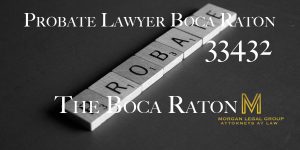Utilizing Trusts for Effective Estate Planning and Asset Protection
Introduction to Trusts in Estate Planning
Estate planning is a vital aspect of securing your financial future and ensuring that your assets are managed and distributed according to your wishes. In the realm of estate planning, trusts have emerged as powerful tools that offer a range of benefits, including asset protection, privacy, and efficient wealth transfer. In this comprehensive guide, we will explore how trusts can help you achieve your estate planning goals and safeguard your assets. At Morgan Legal Group in Miami, we are dedicated to providing expert guidance on estate planning and asset protection.
Understanding the Basics of Trusts
Before delving into how trusts can assist with estate planning and asset protection, let’s start with a fundamental understanding of what a trust is. A trust is a legal entity that allows an individual or entity, known as the trustee, to hold and manage assets for the benefit of one or more individuals or entities, known as the beneficiaries. The individual who creates the trust and funds it is referred to as the grantor or settlor.
Trusts are flexible instruments that can be customized to achieve various estate planning goals. They are typically governed by a written trust agreement that outlines the rules and terms of the trust, including how assets are to be managed, distributed, and protected.
Benefits of Incorporating Trusts into Your Estate Plan
Let’s explore some of the key advantages of incorporating trusts into your estate planning strategy:
1. Asset Protection
One of the primary benefits of trusts is their ability to provide asset protection. Assets placed within certain types of trusts are shielded from creditors and legal judgments. This means that even in the face of financial difficulties or legal disputes, your assets held in a trust may remain protected.
2. Probate Avoidance
Trusts, particularly revocable living trusts, can help you avoid probate. Probate is the legal process of validating a will and distributing assets, which can be time-consuming and costly. By placing assets in a trust, you can ensure a smoother and more private transfer of assets to your beneficiaries without the need for probate.
3. Privacy
Trusts offer a level of privacy that other estate planning tools, such as wills, may not provide. The details of a trust, including its assets and beneficiaries, are typically not part of the public record, offering enhanced confidentiality for your estate plan.
4. Control Over Distribution
Trusts provide a mechanism for you to exercise control over the distribution of your assets. You can specify when and how assets should be distributed to beneficiaries. This is particularly valuable if you have specific wishes regarding how your wealth is managed and allocated.
5. Tax Efficiency
Certain trusts, such as irrevocable trusts, can offer tax benefits. Assets placed in these trusts may not be subject to estate taxes, reducing the tax burden on your estate and preserving more of your wealth for your loved ones.
6. Caring for Loved Ones
Trusts can be instrumental in providing for the financial needs of loved ones, especially those who may require ongoing support. You can establish special needs trusts or spendthrift trusts to ensure that beneficiaries receive necessary assistance while protecting their inheritance from mismanagement.
Types of Trusts for Estate Planning
There is a wide range of trusts available for estate planning, each designed to address specific objectives. Some common types of trusts include:
1. Revocable Living Trust
A revocable living trust allows you to maintain control over your assets during your lifetime while ensuring a smooth transition of those assets to beneficiaries upon your passing. It can help avoid probate and offers flexibility for managing your estate.
2. Irrevocable Trust
An irrevocable trust is typically used for asset protection and tax planning. Once established, it is challenging to modify or revoke. Assets placed in an irrevocable trust are often shielded from estate taxes and creditors.
3. Special Needs Trust
A special needs trust is designed to provide for individuals with disabilities without jeopardizing their eligibility for government benefits. It can enhance their quality of life while ensuring essential financial support.
4. Charitable Remainder Trust
A charitable remainder trust allows you to donate assets to a charity while retaining an income stream during your lifetime. It provides both philanthropic benefits and potential tax advantages.
Creating a Comprehensive Estate Plan with Trusts
Utilizing trusts as part of your estate plan requires careful consideration of your financial situation, goals, and the needs of your beneficiaries. Here are essential steps to create a comprehensive estate plan with trusts:
1. Define Your Goals
Begin by outlining your estate planning objectives. Do you want to protect assets from creditors, minimize taxes, provide for loved ones with special needs, or ensure a smooth transfer of wealth to heirs? Understanding your goals will help determine the most suitable trusts for your plan.
2. Choose the Right Trusts
Work with an experienced estate planning attorney to select the appropriate types of trusts that align with your goals. The attorney can help you navigate the complexities of trust planning and ensure that the chosen trusts are tailored to your specific needs.
3. Fund Your Trusts
Once you’ve established trusts, it’s essential to fund them properly. This involves transferring assets into the trust, which may include real estate, financial accounts, and other valuable properties. Proper funding is critical to realizing the benefits of asset protection and probate avoidance.
4. Name Trustees and Beneficiaries
Appoint trustees who will manage the assets within the trust and make distributions to beneficiaries according to the trust’s terms. Additionally, name beneficiaries who will ultimately receive the trust’s assets.
5. Review and Update
Estate planning is not a one-time endeavor. It’s crucial to regularly review and update your estate plan and trusts to ensure they remain in line with your changing circumstances, financial situation, and goals.
Conclusion
Trusts are indispensable tools for estate planning and asset protection. Whether you seek to safeguard your wealth, provide for loved ones, or support charitable causes, trusts offer the flexibility and advantages necessary to achieve your objectives. At Morgan Legal Group in Miami, our knowledgeable estate planning attorneys are committed to helping you create a comprehensive and effective estate plan that utilizes trusts to their fullest potential. Contact us today to embark on the journey of securing your financial future.








